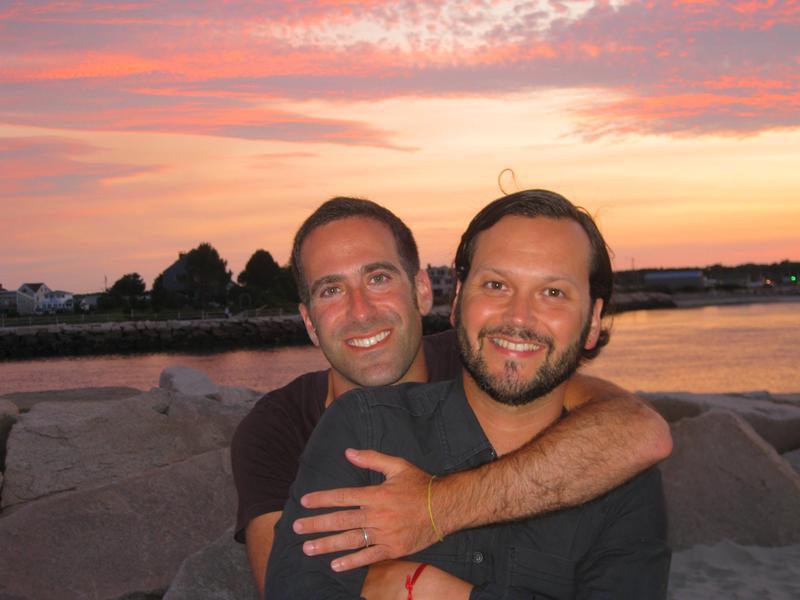
Max Oliva got to New York from Argentina on a cold January day in 2001. He was on vacation, and he headed to a midtown night club.
“It was obviously a magical night,” Oliva said.
With his favorite artist Madonna booming over the speakers, Oliva locked eyes with a man on the opposite side of the club. Eventually they started talking.
“I met someone who I really, really liked,” Oliva said. “And from there the spark was there.”
The man was Jesse Goodman. It was an important day for him as well.
“It was definitely a destined to be night because actually it was the night when I finally came out to my mom,” Goodman said.
A year later Oliva moved to New York. He got a job and a work visa. The federal government didn’t recognize same-sex couples’ relationships, so Goodman couldn’t sponsor Oliva for a visa. Although they were together, Goodman and Oliva say dealing with visa extensions, employers and lawyer fees put a strain on their relationship.
“During that period it was so tedious,” Oliva said.
“And tense,” Goodman added.
“Yeah, tense,” Oliva agreed. “We had so many arguments.”
The patchwork of legal solutions they had come up with ran its course after four years when Oliva couldn’t find a new employer willing to sponsor him. Goodman then got a job offer in Hungary and said he’d accept it if the company offered a job to Oliva too. It worked.
Two years later, Goodman got a job in London and sponsored Oliva for a visa. The United Kingdom of Great Britain and Northern Ireland, like around 30 other countries, recognizes same sex couples for immigration purposes. Oliva and Goodman, both 38, became permanent residents and are going to become British citizens in September 2013.
They anxiously waited the Supreme Court’s decision last month and celebrated when the key provision of the Defense of Marriage Act was struck down. Now, Goodman, like other gay U.S. citizens and permanent residents, can sponsor Oliva for a green card if they get married. But they say that for now they’re not planning to come back to the U.S.
“I’m very happy, but for us it’s a little bit late,” Oliva said.
Some couples living abroad are ready to return to the U.S. Same-sex advocacy groups say they’ve received calls from around the globe from couples who want to take the first steps in that process. But there are many others like Goodman and Oliva who feel settled outside the U.S.
 Brandon Perlberg, 35, who lives in London, is also among them.
Brandon Perlberg, 35, who lives in London, is also among them.
“The Supreme Court’s decision did a lot of things, but what it didn’t do was to undo the damage that DOMA did,” he said.
Perlberg worked as an attorney in New York. His fiancé, Benn Storey, a British citizen, had a work visa and they lived together for five years in the city. But once it became clear Storey couldn’t get a green card, they decided to move to the U.K.
That was a year and a half ago. Perlberg couldn’t find a job for nearly a year and struggled. Now he has a job as a consultant, new friends and an apartment - ingredients of what Perlberg says is a good life in London.
“You paint the walls in the apartment to the color that you like, because you say, ‘All right, I’m going be here for a while.’” he said. “I should make this place look like home. You hang a picture on the wall, and suddenly it becomes a home to you.”
Perlberg says he spent around $100,000 of savings on lawyer fees, relocation expenses and living expenses during the year he didn’t work. He says he feels extremely happy about having the option to return to the U.S., especially New York, with his partner. But he isn’t planning to take advantage of it now.
“I can get on a plane bound for New York tomorrow, but I won’t get my life back,” he said. “Someone else is living in my home, my job is gone, tons of savings gone, and that doesn’t even begin to address the emotional toll this process has taken.”
